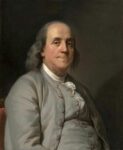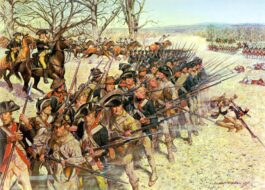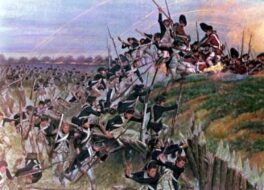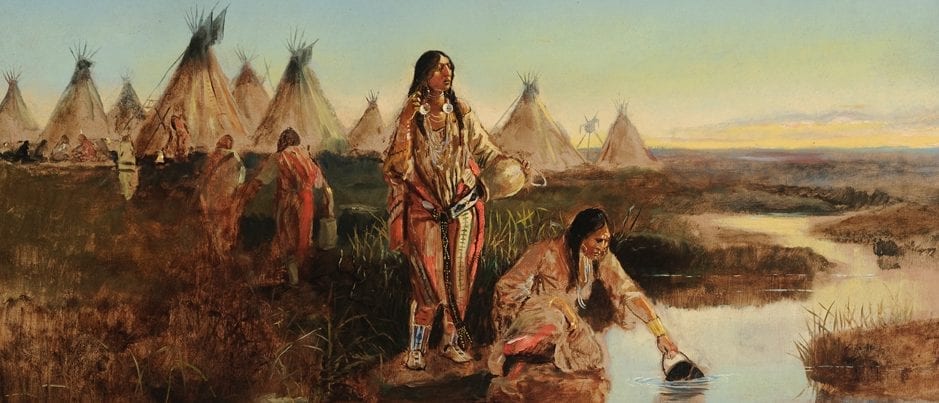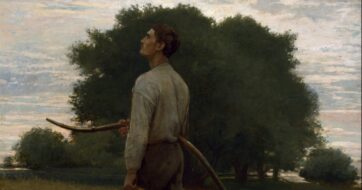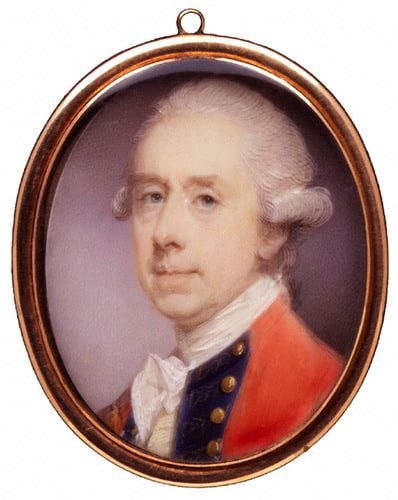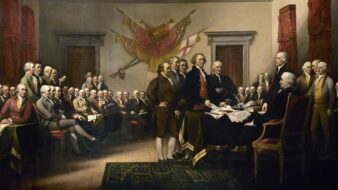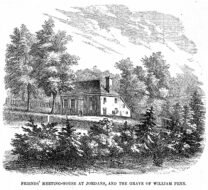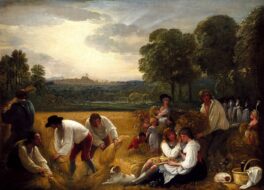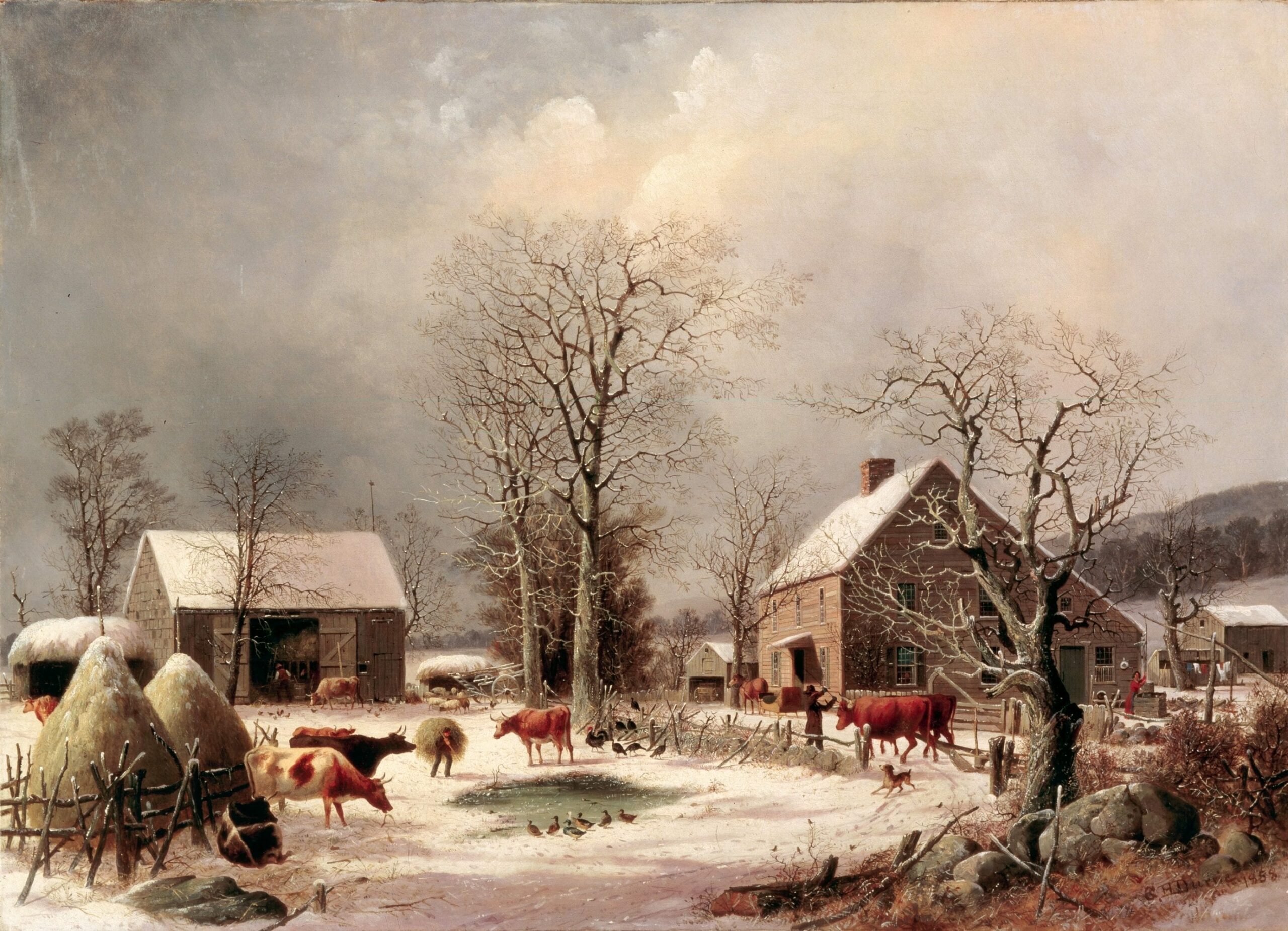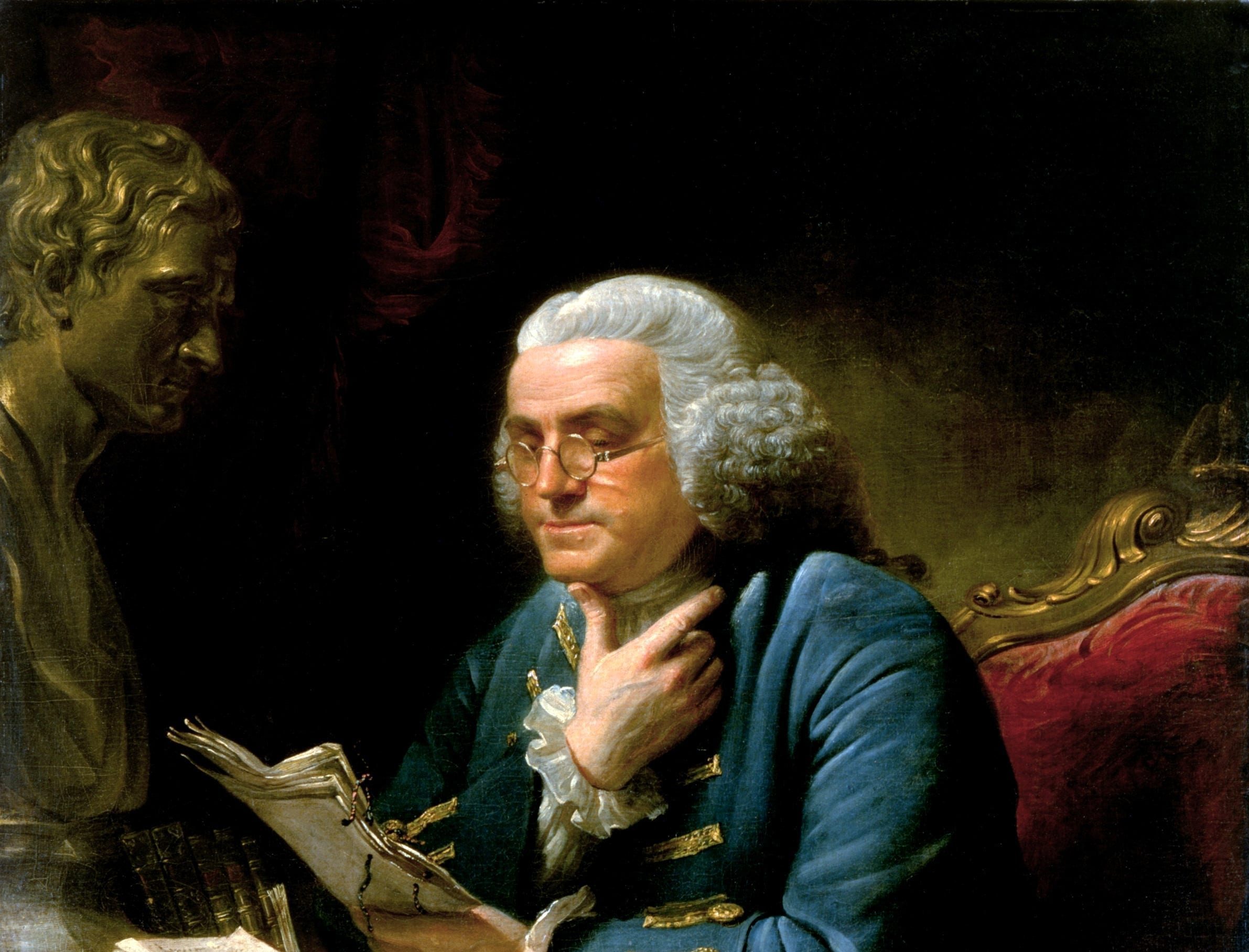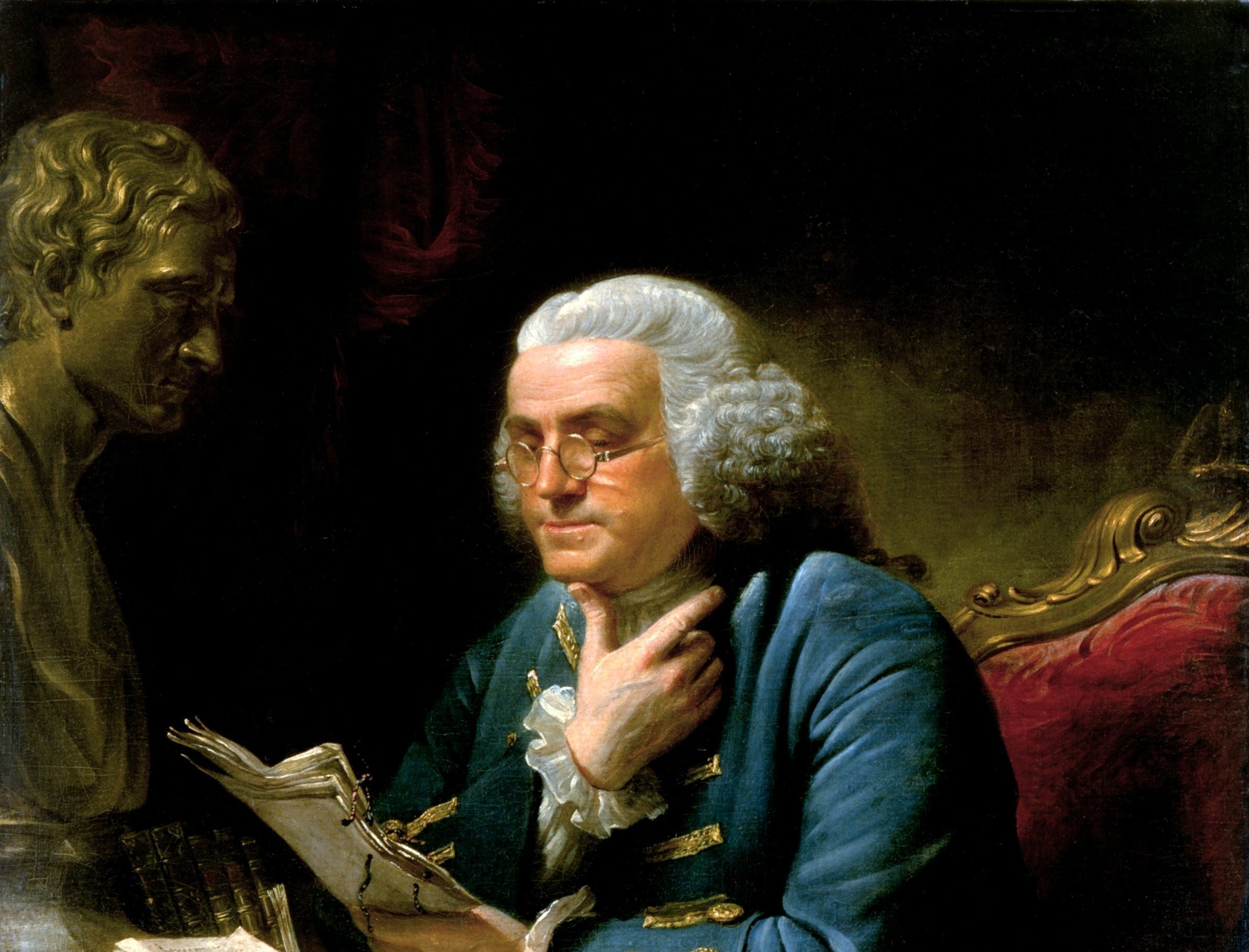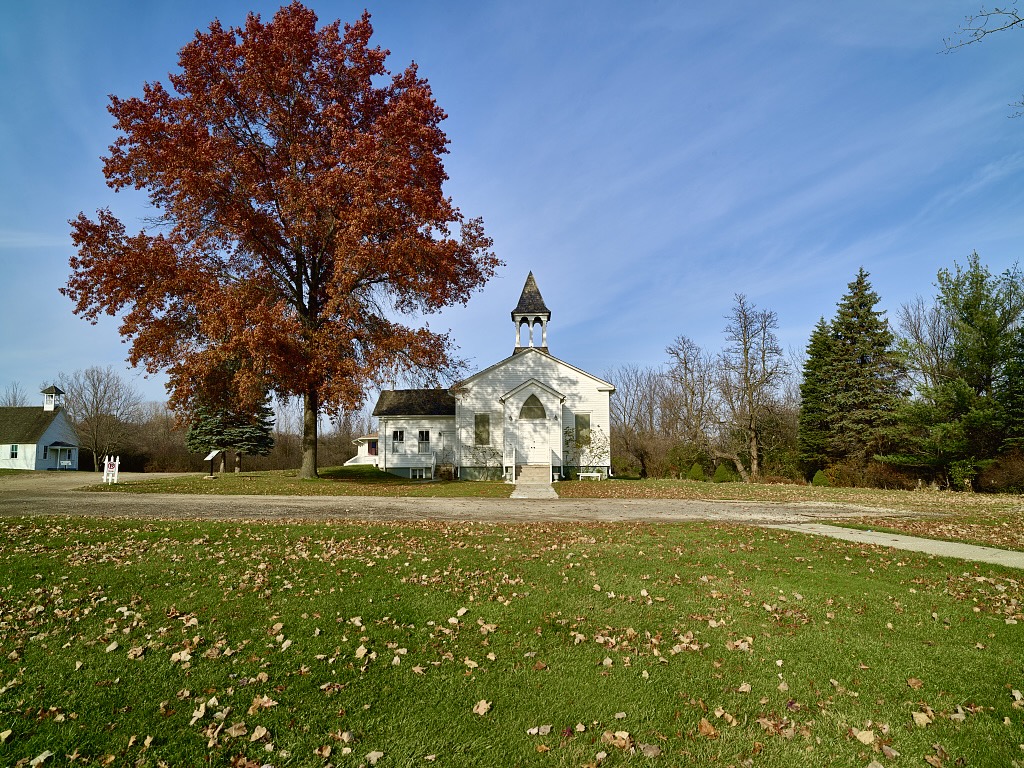
No study questions
No related resources
Introduction
Lemuel Haynes (1753–1833) is thought to be the first African American ordained as a minister in the United States. He was called to several churches in New England and served longest as the minister of a church in Rutland, Vermont. In 1776 he preached or published an anti-slavery sermon that used as a text not a passage from the Bible, as was customary, but this excerpt from the Declaration: “We hold these truths to be Self-Evident, that all men are created Equal, that they are endowed by their Creator with certain unalienable rights, that among these are Life, Liberty, and the pursuit of happiness.” His sermon, “Liberty Further Extended: Or Free Thoughts on the Illegality of Slave-Keeping,” argued that “even an African, has equally as good a right to his liberty in common with Englishmen.”
Haynes took up this theme again in a sermon in 1801, “The Nature and Importance of True Republicanism,” which he preached on July 4, the twenty-fifth anniversary of the Declaration’s signing. On its anniversary, he echoed the Declaration, arguing that the “God of nature” did not make Africans inferior to whites. Slavery, therefore, was the creation only of “cruel hands of oppression.”
Source: Haynes, Lemuel and Royster, Paul , ed., "Liberty Further Extended: Or Free thoughts on the illegality of Slave-keeping; Wherein those arguments that are used in its vindication are plainly confuted. Together with an humble Address to such as are concerned in the practice." (1776). Electronic Texts in American Studies. 94. https://digitalcommons.unl.edu/etas/93
We hold these truths to be Self-Evident, that all men are created Equal, that they are endowed by their Creator with certain unalienable rights, that among these are Life, Liberty, and the pursuit of happiness.
Congress.
The Preface.
As tyranny had its origin from the infernal regions: so it is the duty, and honor of every son of freedom to repel her first motions. But while we are engaged in the important struggle, it cannot be thought impertinent for us to turn one eye into our own breast, for a little moment, and see, whether through some inadvertency, or a self-contracted spirit, we do not find the monster lurking in our own bosom; that now while we are inspired with so noble a spirit and becoming zeal, we may be disposed to tear her from us. If the following would produce such an effect the author should rejoice.
It is evident, by ocular demonstration, that man by his depravity, hath procured many corrupt habits which are detrimental to society; and although there is a way prescribed whereby man may be reinstated into the favour of God, yet these corrupt habits are not extirpated, nor can the subject of renovation boast of perfection, ’till he leaps into a state of immortal existence. Yet it hath pleased the Majesty of Heaven to exhibit his will to men, and endow them with an intellect which is susceptible of speculation; yet, as I observed before, man, in consequence of the Fall is liable to digressions. But to proceed,
Liberty, & freedom, is an innate principle, which is unmovably placed in the human species; and to see a man aspire after it, is not enigmatical, seeing he acts no ways incompatible with his own nature; consequently, he that would infringe upon a man’s liberty may reasonably expect to meet with opposition, seeing the defendant cannot comply to non-resistance, unless he counteracts the very laws of nature.
Liberty is a jewel which was handed down to man from the cabinet of Heaven, and is coeval with his existence. And as it proceeds from the Supreme Legislature of the universe, so it is He which hath a sole right to take away; therefore, he that would take away a mans Liberty assumes a prerogative that belongs to another, and acts out of his own domain.
One man may boast a superiority above another in point of Natural privilege; yet if he can produce no convincive arguments in vindication of this preeminence his hypothesis is to be suspected. To affirm, that an Englishman has a right to his Liberty, is a truth which has been so clearly evinced, especially of late, that to spend time in illustrating this, would be but superfluous tautology. But I query, whether Liberty is so contracted a principle as to be confined to any nation under Heaven; nay, I think it not hyperbolical to affirm, that even an African, has equally as good a right to his Liberty in common with Englishmen.
I know that those that are concerned in the Slave-trade, do pretend to bring arguments in vindication of their practice; yet if we give them a candid examination, we shall find them (even those of the most cogent kind) to be essentially deficient. We live in a day wherein Liberty & freedom is the subject of many millions’ concern; and the important struggle hath already caused great effusion of blood; men seem to manifest the most sanguine resolution not to let their natural rights go without their lives go with them; a resolution, one would think every one that has the least love to his country, or future posterity, would fully confide in, yet while we are so zealous to maintain, and foster our own invaded rights, it cannot be thought impertinent for us candidly to reflect on our own conduct, and I doubt not but that we shall find that subsisting in the midst of us, that may with be styled Oppression, nay, much greater oppression, than that which Englishmen seem so much to spurn at. I mean an oppression which they, themselves, impose upon others.
It is not my business to enquire into every particular practice, that is practiced in this land, that may come under this odious character; but, that I have in view, is humbly to offer some free thoughts, on the practice? Slave-keeping. Oppression, is not spoken of, nor ranked in the sacred oracles, among the least of those sins, that are the procuring cause of those signal judgments, which God is pleased to bring upon the children of men. Therefore let us attend. I mean to write with freedom, yet with the greatest submission.
And the main proposition, which I intend for some brief illustration is this, namely, that an African, or, in other terms, that a Negro may justly challenge, and has an undeniable right to his Liberty. Consequently, the practice of Slave-keeping, which so much abounds in this land is illicit.
Every privilege that mankind enjoy have their origin from God; and whatever acts are passed in any earthly court, which are derogatory to those Edicts that are passed in the Court of Heaven, the act is void. If I have a particular privilege granted to me by God, and the act is not revoked nor the power that granted the benefit vacated, (as it is impossible but that God should ever remain immutable) then he that would infringe upon my Benefit, assumes an unreasonable, and tyrannic power.
“It hath pleased God to make of one Blood all nations of men, for to dwell upon the face of the Earth.” Acts 17, 26–23. And as all are of one species, so there are the same laws, and aspiring principles placed in all nations; and the effect that these laws will produce, are similar to each other. Consequently we may suppose, that what is precious to one man, is precious to another, and what is irksome, or intolerable to one man, is so to another, considered in a law of nature. Therefore we may reasonably conclude, that Liberty is equally as precious to a Black man, as it is to a white one, and Bondage equally as intolerable to the one as it is to the other: Seeing it effects the laws of nature equally as much in the one as it does in the other. But, as I observed before, those privileges that are granted to us by the Divine Being, no one has the least right to take them from us without our consent; and there is not the least precept, or practice, in the sacred scriptures, that constitutes a Black man a Slave, any more than a white one.
Shall a mans color be the decisive criterion whereby to judge of his natural right? Or because a man is not of the same color with his neighbour, shall he be deprived of those things that distinguisheth him from the beasts of the field?
I would ask, whence is it that an Englishman is so far distinguished from an African in point natural privilege? Did he receive it in his original constitution? or by some subsequent grant? Or does he boast of some higher descent that gives him this pre-eminence? For my part I can find no such revelation. It is a lamentable consequence of the Fall, that mankind have an insatiable thirst after superiority one over another: So that however common or prevalent the practice may be, it does not amount, even to a circumstance, that the practice is warrantable.
God has been pleased to distinguish some men from others, as to natural abilities, but not as to natural right, as they came out of his hands. …
Pray let there be a congruity amidst you conduct, lest you fall amongst that class the inspired pen-man speaks of. Rom. 2.21 and on. Thou therefore which teacheth another, teachest thou not thy self? thou that preachest a man should not steal, dost thou steal? thou that sayest, a man should not commit adultery, dost thou commit adultery? thou that abhoreth idols, dost thou commit sacrilege? thou that makest thy boast of the Law, through breaking the Law dishonorest thou God? While you thus sway your tyrant scepter over others, you have nothing to expect but to share in the bitter pill.
’Twas an excellent note that I lately read in a modern piece, and it was this. “O when shall America be consistently engaged in the Cause of Liberty!” If you have any love to yourselves, or any love to this Land, if you have any love to your fellow-men, break these intolerable yokes, and let their names be remembered no more, lest they be retorted on your own necks, and you sink under them: for God will not hold you guiltless.
Sirs, the important Cause in which you are engaged in is of an excellent nature, ’tis ornamental to your characters, and will, undoubtedly, immortalize your names through the latest posterity. And it is pleasing to behold that patriotic zeal which fires your breast; But it is strange that you should want the least stimulation to further expressions of so noble a spirit.

Conversation-based seminars for collegial PD, one-day and multi-day seminars, graduate credit seminars (MA degree), online and in-person.
